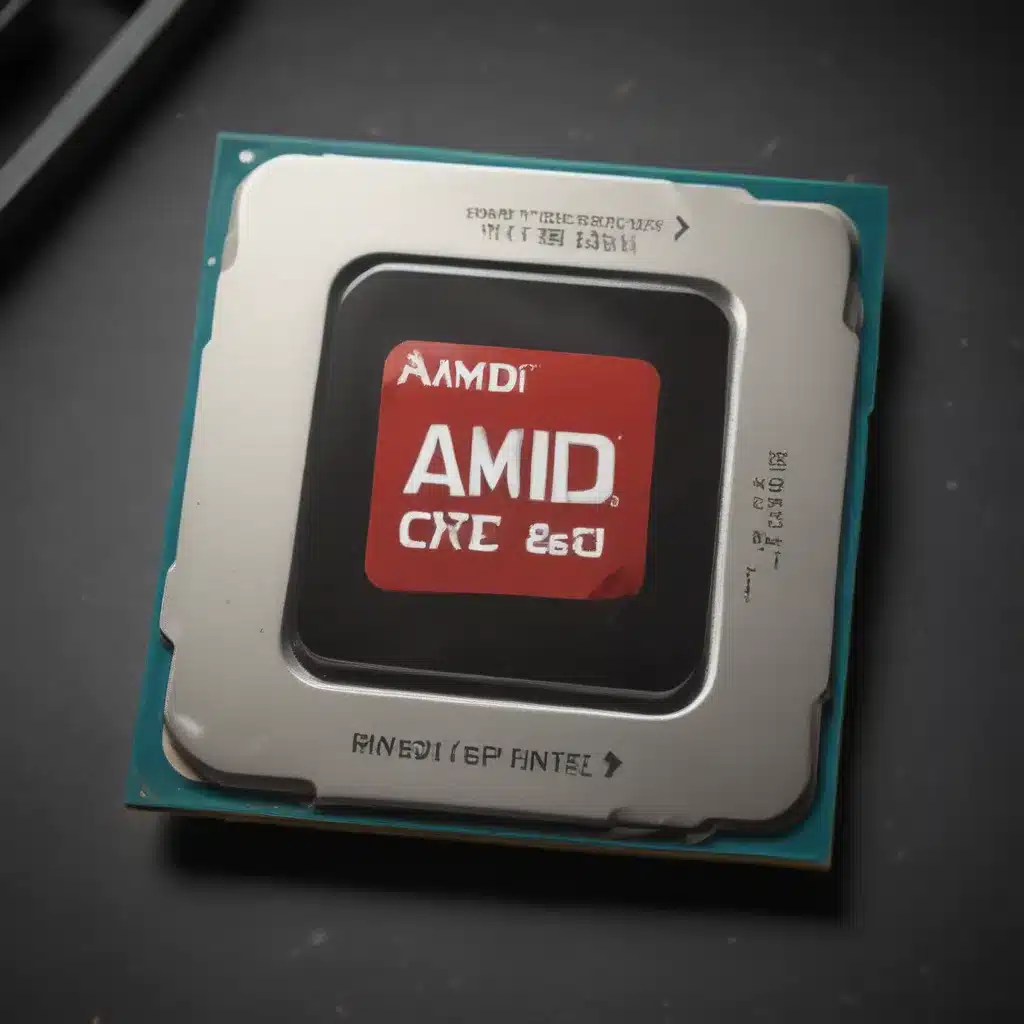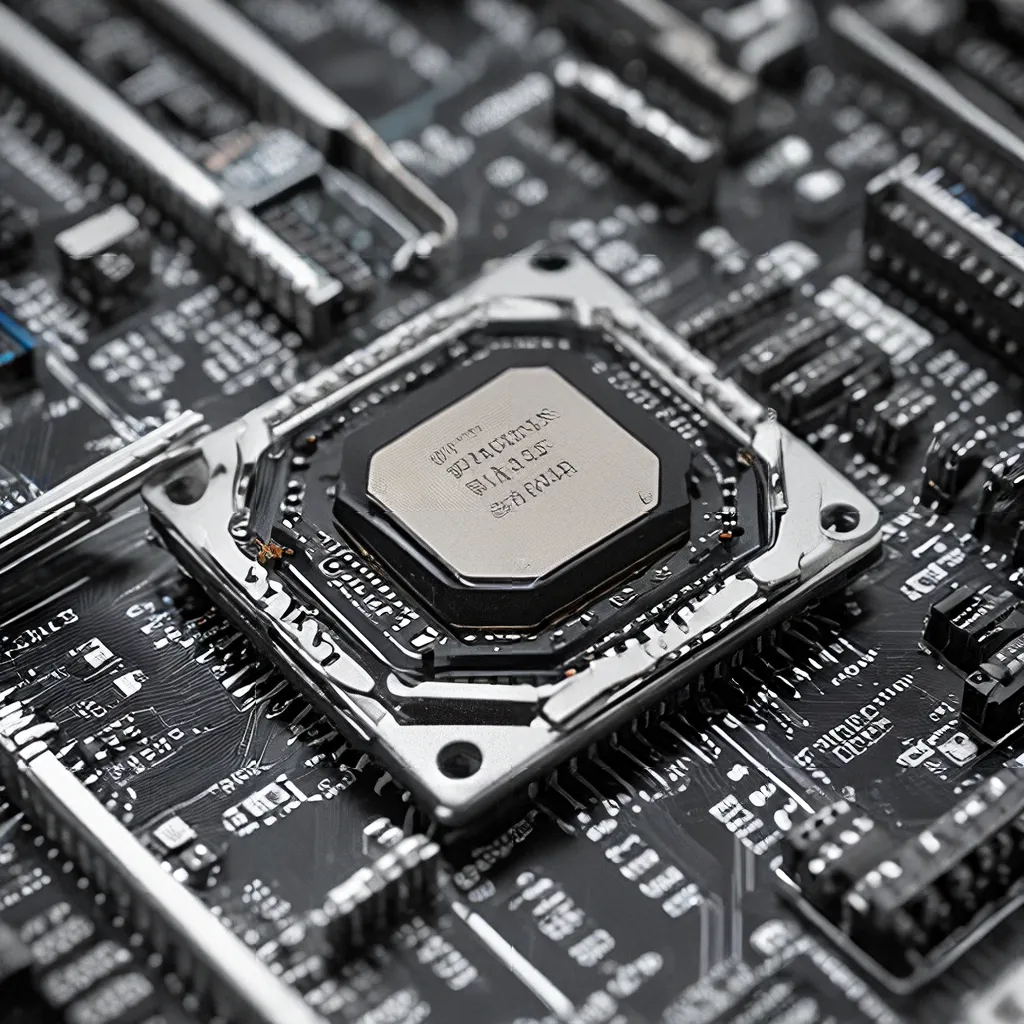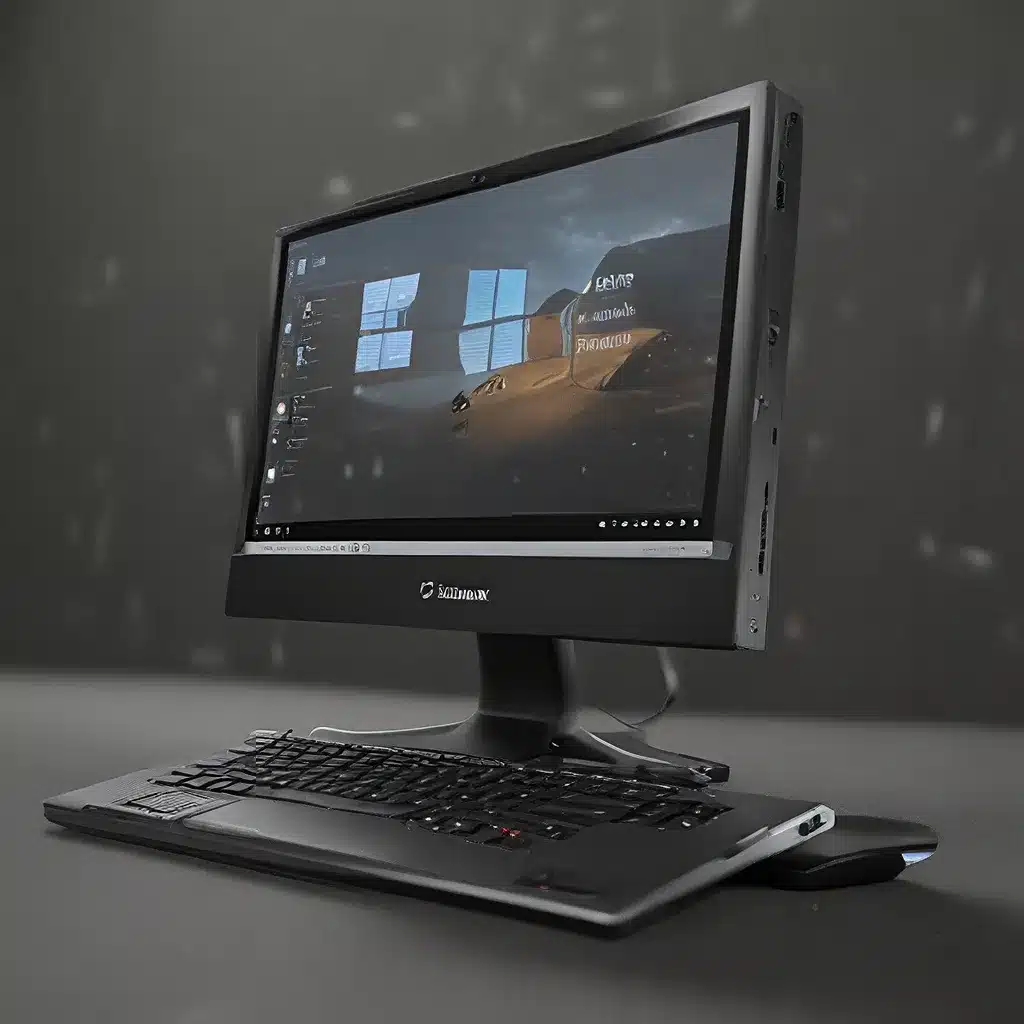The Great CPU Conundrum: AMD or Intel?
As a self-proclaimed tech enthusiast, I’ve always been fascinated by the ongoing battle between AMD and Intel. It’s like a real-life version of the Avengers vs. Justice League debate, where tech nerds gather around the campfire, s’mores in hand, passionately defending their chosen CPU brand. And let me tell you, the arguments can get as heated as a Ryzen CPU under heavy load!
But fear not, my fellow computer aficionados, for I’m here to guide you through the treacherous waters of CPU selection. Whether you’re building a gaming rig, a productivity powerhouse, or just a humble office machine, I’ll make sure you end up with the right processor for your needs. So, let’s dive in and explore the AMD vs. Intel conundrum, shall we?
Decoding the CPU Codes: Intel and AMD Unveiled
Before we even get into the nitty-gritty of performance and features, let’s take a moment to decipher the cryptic codes that Intel and AMD have bestowed upon us. It’s like trying to solve a Rubik’s Cube while blindfolded, but I’ll do my best to make sense of it all.
Intel’s lineup, for example, is like a secret language only they understand. You’ve got your i3, i5, i7, and i9 processors, each with a seemingly random combination of numbers tacked on the end. And don’t even get me started on the “K” and “X” designations – it’s like they’re playing a game of CPU Scrabble.
AMD, on the other hand, has a more straightforward approach. Their Ryzen processors are simply labeled with numbers, like Ryzen 5, Ryzen 7, and Ryzen 9. It’s almost as if they wanted to make it easy for us mere mortals to understand. But of course, there’s still the “X” and “XT” variations to keep us on our toes.
Benchmarking the Behemoths: Performance Prowess
Now, let’s get to the heart of the matter – performance. After all, that’s what we all care about, right? We want our computers to be faster than a cheetah on Red Bull, and we’ll stop at nothing to achieve that goal.
[1] According to the folks over at Reddit, it seems like Intel’s gaming performance is still top-notch, with their latest 13th-Gen Raptor Lake series giving AMD a run for their money. But the real kicker is the power efficiency – AMD’s chips are apparently 2-3 times more efficient, which could mean some serious savings on your electricity bill.
[2] However, the experts at Tom’s Hardware have a slightly different take. They claim that AMD’s offerings, especially the X3D variants, are actually the gaming champions, outperforming Intel in many scenarios. And the added benefit of being able to upgrade your CPU down the line without changing the entire motherboard is a pretty sweet deal.
[3] Avast, the security experts, have weighed in as well, and they seem to think that Intel’s chips offer the best balance of performance in both gaming and productivity tasks. But they also acknowledge that AMD’s specialized X3D CPUs reign supreme when it comes to pure gaming prowess.
[4] The good folks over at r/buildapc have a more nuanced view – they say it really depends on what you plan to do with your PC. If you’re a hardcore gamer, AMD might be the way to go, but if you need a more well-rounded powerhouse, Intel could be the better choice.
[5] And according to the experts at ZDNet, if you’re after the absolute fastest chips on the market, Intel’s 13th-Gen Raptor Lake series is the way to go. But they also note that AMD’s Zen 4 Ryzen 7000 series is no slouch, and the non-X models offer some pretty compelling value.
The Showdown: AMD vs. Intel – Pricing and Value
Now, let’s talk about the one thing that can make or break a deal – the good old dollar (or in this case, the pound sterling). After all, what’s the point of having the fastest CPU on the planet if it costs more than a Ferrari?
[6] The folks at SlashGear have observed that while AMD has recently reduced the pricing of its Ryzen 7000 series, the cost of AM5 motherboards and DDR5 memory can still be a bit of a hurdle. On the other hand, Intel’s 13th-Gen Raptor Lake chips seem to offer a more accessible entry point, at least when it comes to the overall system cost.
[7] However, Digital Trends has uncovered a game-changing development – AMD’s Ryzen 7000 “X3D” models, which utilize some fancy 3D chip-stacking technology, have emerged as the new kings of gaming performance. And the best part? They can actually be a more value-centric option than their Intel counterparts.
[8] The experts at IGN have done a deep dive into the pricing and value proposition of both AMD and Intel’s latest offerings, and their analysis shows that Intel has a slight edge, taking 7 out of the 12 criteria they evaluated. But the gap is certainly closing, and AMD is giving Intel a run for their money, especially in the gaming-focused segment.
The Verdict: Choosing the Right CPU for You
So, after all this technical mumbo-jumbo, what’s the verdict? Well, my friends, it really comes down to what you plan to do with your computer.
If you’re a hardcore gamer who lives and breathes frame rates, then AMD’s Ryzen 7000 X3D chips might be the way to go. They offer unparalleled gaming performance, and the price-to-performance ratio is quite impressive.
[7] However, if your needs extend beyond just gaming, and you require a more well-rounded powerhouse for tasks like video editing, 3D modeling, or heavy-duty productivity, then Intel’s 13th-Gen Raptor Lake series might be the better choice. [5] They offer a winning blend of performance in both gaming and productivity workloads, even if they do come with a slightly higher power bill.
And let’s not forget about the budget-conscious folks out there. [6] AMD’s Ryzen 7000 non-X models and their older, but still capable, Ryzen 5000 series can be excellent value propositions, especially if you’re willing to pair them with a more affordable B550 or X570 motherboard.
At the end of the day, the choice between AMD and Intel is a highly personal one, and there’s no one-size-fits-all solution. It’s like choosing between chocolate and vanilla ice cream – both are delicious, but your preference ultimately comes down to your individual taste buds.
So, my fellow tech enthusiasts, I hope this guide has helped you navigate the AMD vs. Intel conundrum. May your CPU choice be as smooth as a well-tuned overclocked system, and may your framerates be as high as a kite. Happy computing!
References
[1] https://www.reddit.com/r/intel/comments/12cwvy5/is_there_any_reason_to_buy_intel_over_amd_now_for/
[2] https://www.tomshardware.com/features/amd-vs-intel-cpus
[3] https://www.avast.com/c-amd-vs-intel-cpu
[4] https://www.reddit.com/r/buildapc/comments/14pivr3/amd_or_intel/
[5] https://www.zdnet.com/article/amd-vs-intel-which-desktop-processor-is-right-for-you/
[6] https://www.slashgear.com/1544402/amd-vs-intel-how-to-choose-the-right-cpu/
[7] https://www.digitaltrends.com/computing/amd-vs-intel/
[8] https://www.ign.com/articles/amd-vs-intel-cpu-comparison













